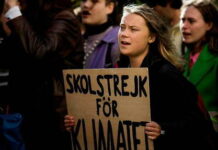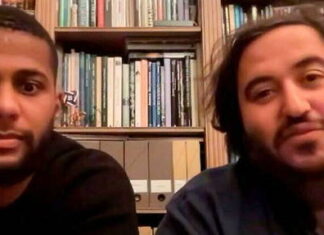On Thursday, May 19, the NGO Amnesty International asked Fifa to pay compensation of at least $440 million to “mistreated” migrant workers in Qatar, host country of the 2022 World Cup, accused of not sufficiently respecting their rights. rights.
Supported by other human rights organisations, Amnesty’s request comes after repeated criticism of the football governing body’s slowness to react to the poor working conditions of workers who have flocked to the construction sites linked to the World Cup in the wealthy Gulf state. “Fifa should dedicate at least $440 million (approximately 418 million euros) to repair the damage suffered by the hundreds of thousands of migrant workers who suffered human rights violations in Qatar during the preparations for the 2022 World Cup. “said the NGO in a press release.
According to Amnesty, this sum, which corresponds to the prize money that the 32 participating teams will share, is the “minimum necessary” to compensate workers and protect them from future abuse. The organization cites, among other things, unpaid wages, the payment of “illegal” and “exorbitant” recruitment fees and damages caused by accidents at work. The London-based NGO urged Fifa to “work with Qatar” to put in place a comprehensive reparations program with the participation of workers, unions, the International Labor Organization (ILO) and civil society .
Since 2010, when FIFA awarded the 2022 World Cup to Qatar, a “litany of abuses” has marred the preparations without the body having demanded “the slightest improvement in working conditions”, according to Amnesty. The NGO nevertheless welcomed the social reforms decided by Qatar since 2018 and the improvement of conditions on the official construction sites of the World Cup undertaken in 2014. But according to the NGO, these rules are not always respected and abuses persist.
In a comment sent to Agence France-Presse, Fifa said it was “currently evaluating the proposal from Amnesty” and other NGOs, saying it “involves a wide range of public infrastructure built (in Qatar) since 2010 which are not necessarily related to the World Cup”. Criticized since being awarded the first World Cup in an Arab country, Qatar has carried out major reforms, abolishing the sponsorship system making employees quasi-properties of their employer and establishing a minimum hourly wage . The country firmly rejects the death tolls on construction sites put forward by international media.
In a press release sent to AFP, the Supreme Organizing Committee of the World Cup affirms “to have worked tirelessly to guarantee the respect of the rights of each worker engaged on the projects of the World Cup”. He further assures that “significant progress has been made” in several areas (housing, health, security, etc.). He adds that he has “worked alongside many recognized international partners on his Worker Welfare Respect program.”


















